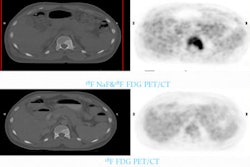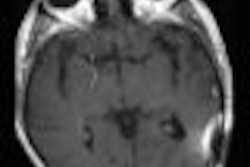Targeted therapy with radiopharmaceuticals could greatly improve cancer treatment, especially for cancer cells that have migrated from primary tumors to lymph nodes and secondary organs, according to a new study.
Researchers from Rutgers-New Jersey Medical School Cancer Center treated breast cancer cells with different concentrations of four fluorochrome-conjugated monoclonal antibodies (Journal of Nuclear Medicine, December 2014, Vol. 55:12, pp. 2012-2019).
"Our approach moves radiation treatment planning for cancer therapy from the tumor level to the molecular and cellular level, with nuclear medicine serving as the treatment engine," said co-author Roger Howell, PhD, in a statement.
Patients do not have to receive any radiopharmaceutical injections during the planning phase; rather, they receive radiopharmaceuticals during the treatment phase, when a cocktail specifically optimized for the individual is administered, he added.
The approach is designed to spare patients from receiving ineffective cocktails that may damage normal tissues and prevent further treatment.




















